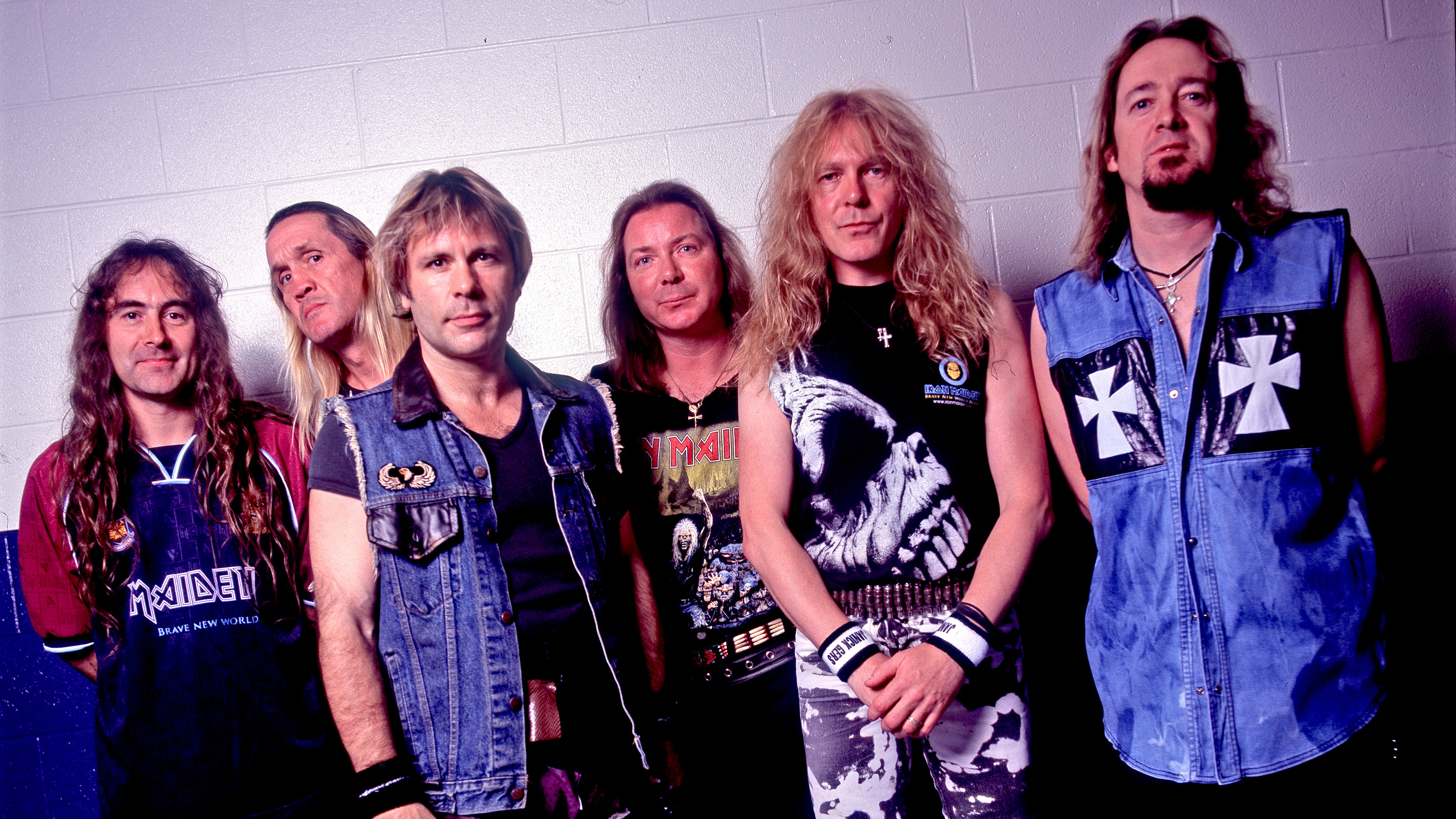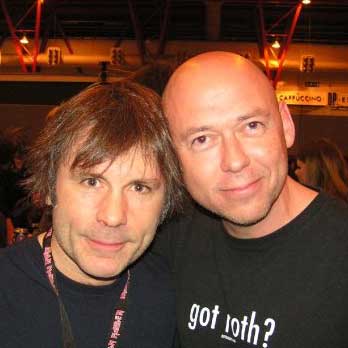“When Bruce came back I wasn’t 100% sure of the reasons behind it. I was like, ‘Well, okay, let’s see.’ I’ll be honest – I wasn’t sure”: How Iron Maiden’s Steve Harris made his peace with singer Bruce Dickinson
“Bruce is unusual – which is probably what makes him so good”

Want all the hottest music and gear news, reviews, deals, features and more, direct to your inbox? Sign up here.
You are now subscribed
Your newsletter sign-up was successful
When singer Bruce Dickinson rejoined Iron Maiden in 1999, the band’s legions of fans were ecstatic. But amid the celebrations, one man remained cautious – Maiden’s bassist and leader Steve Harris.
As Harris now recalls to MusicRadar, he had serious doubts about Dickinson’s motives – and remained uncertain for months on end until the singer’s performances and commitment won him over.
Iron Maiden had endured some hard times during the six years that Dickinson was out of the band.
His replacement, former Wolfsbane frontman Blaze Bayley, featured on two Maiden albums, The X Factor (1995) and Virtual XI (1998). But after both albums received a lukewarm response from fans and critics alike, Bayley was dismissed and Dickinson was welcomed back along with another returning former member, guitarist Adrian Smith.
The new-look Maiden line-up featured three guitarists – Smith, Dave Murray and Janick Gers – alongside Harris, Dickinson and drummer Nicko McBrain.
For Harris, bringing Adrian Smith back into the fold was never an issue. The laidback Smith was always easy to get along with.
But Dickinson was a very different prospect. When he auditioned for Maiden in 1981 he gave Harris advance warning that he would be opinionated – in his own words, “a pain in the arse”. And from that moment on there was always a degree of tension between the two of them.
Want all the hottest music and gear news, reviews, deals, features and more, direct to your inbox? Sign up here.
Their relationship was further complicated by the fact that Dickinson had walked out of the band in 1993. As a result, it took some time for Harris to trust the singer again when he returned in 1999.
“When Bruce came back it was a wonderful thing to certain degree,” Harris recalls, “But I wasn’t a hundred per cent sure of the reasons behind it. So I was like, ‘Well, okay, let’s see.’
“And it was great. We did a great tour, and from then on it was alright. It’s been great ever since. But at the time, I’ll be honest, I wasn’t sure.”
Harris explains that his strategy in dealing with Dickinson began with letting of past conflicts.
“You have to put things to one side,” he says. “I think the older you get, the easier it is to deal with, in the sense that you just bite your tongue and get on with it. You don't let things get bogged down where they might have done a few years before.
“You know, people are tough to live with anyway. I mean, everyone is. So you just have to work out what works for everybody. And I think with a band, you just learn when to leave people alone.”
He adds: “Bruce is unusual, put it that way. Which is probably what makes him so good. He’s got an unusual quality to his voice. But it’s difficult to talk about other people and analyse what they are or what they're not.”
Harris says of his role as band leader: “It’s not that I’m totally, brutally honest with absolutely everything. You have to be diplomatic to a certain degree in all walks of life. But you also have to do whatever you think is right.
“It’s never easy making the big decisions. It’s not comfortable. But when the chips are down, you have to stand up and be counted.”
The first new album of Dickinson’s second era with Maiden was Brave New World, released in 2000. “A really good album,” Harris says.
Harris also feels that after the return of Dickinson and Smith it was important that Maiden continued to perform songs from the Blaze Bayley era on tour – epic tracks such as Sign Of The Cross from The X Factor and The Clansman from Virtual XI.
“To be fair to Bruce, he didn't have a problem doing those songs,” Harris says. “He never put up a fight or said, ‘I don’t want to do them because it’s not my era.'”
He adds that Dickinson was “the same with songs from the first two albums when he first joined the band” – referring to the early ’80s, when Maiden's live set featured many tracks originally recorded with vocalist Paul Di’Anno.
“Bruce is a team player when it comes to that type of thing,” Harris says. “He knows that it’s the history of the band, whatever period. He wasn’t there for all of it, but he realises how important it all is.
“And I respected him for that, definitely. But also, I suppose there's maybe an element that he wanted to prove that he could do this songs better, perhaps, or differently, or whatever. I don't know.”
Most important of all, Dickinson simply recognised those songs as legitimate Iron Maiden songs.
“Exactly,” Harris says. “That’s what I’d like to think. But I never actually sat him down and asked him that question. I just said, ‘You fancy doing these?’ And he was like, ‘Yeah, I'll do it.’
“I didn't have to fight to get those songs in the set. And I’d like to do a couple more from that era as well at some point, because I think Bruce would do a great job with them, and they’re songs that I'd love to play again.”

Paul Elliott has worked for leading music titles since 1985, including Sounds, Kerrang!, MOJO and Q. He is the author of several books including the first biography of Guns N’ Roses and the autobiography of bodyguard-to-the-stars Danny Francis.
You must confirm your public display name before commenting
Please logout and then login again, you will then be prompted to enter your display name.

